
Can you use “んです” in the right way?
Japanese use “んです” very frequently in the daily conversation, but the usage of this might be difficult for foreigners.
So, today we are going to learn the usage of “んです” and learn to speak more naturally using “んです”!
At the first, look at three conversations using “んです”.
Conversation①
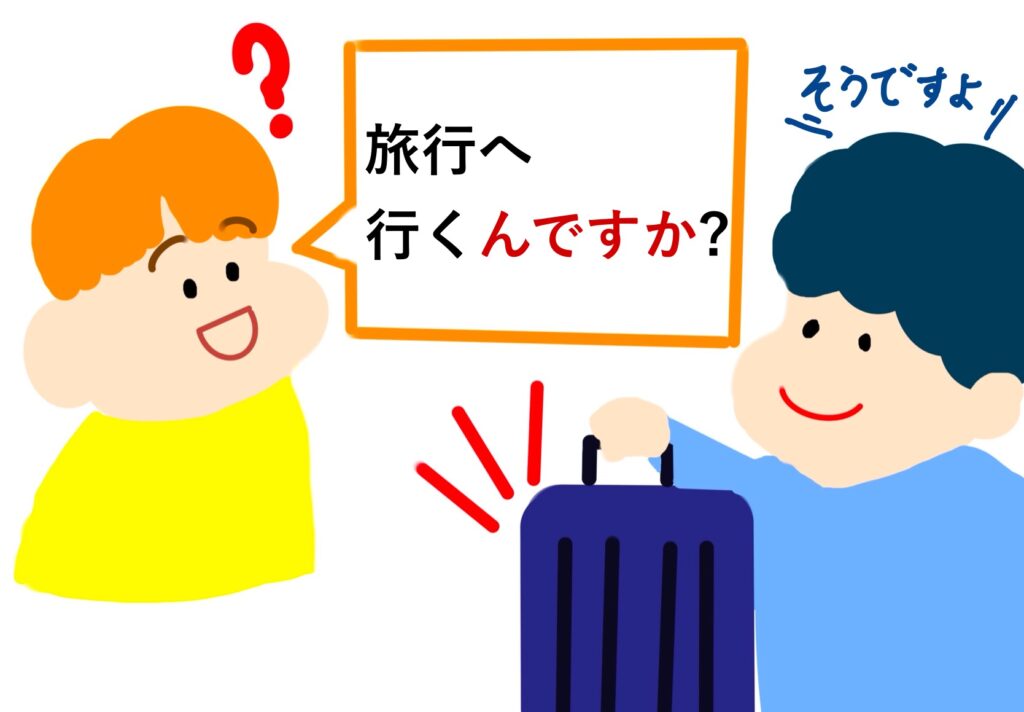
“Are you going on a trip?” – “Yes”
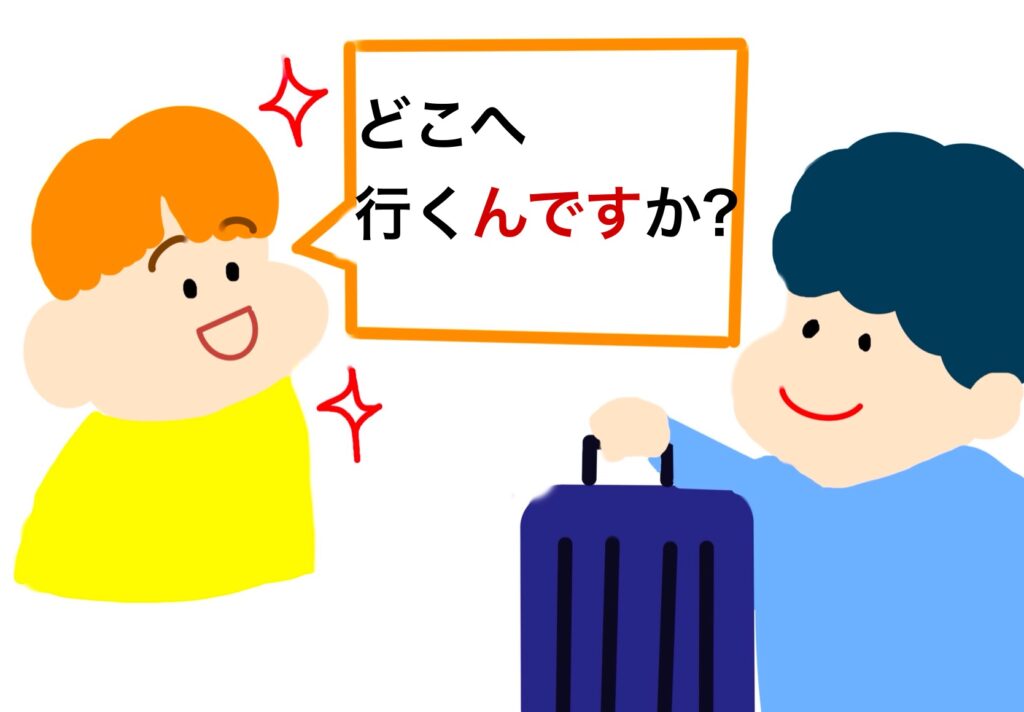
”Where are you going to?”
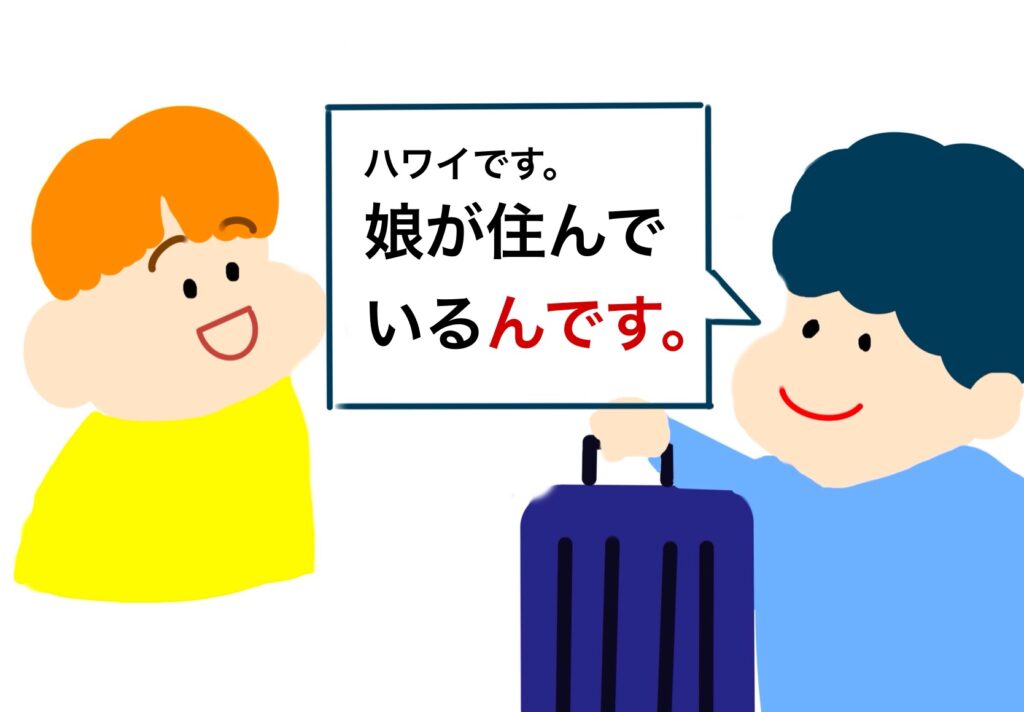
”I’m going to Hawaii. My daughter live there.”
Conversation②
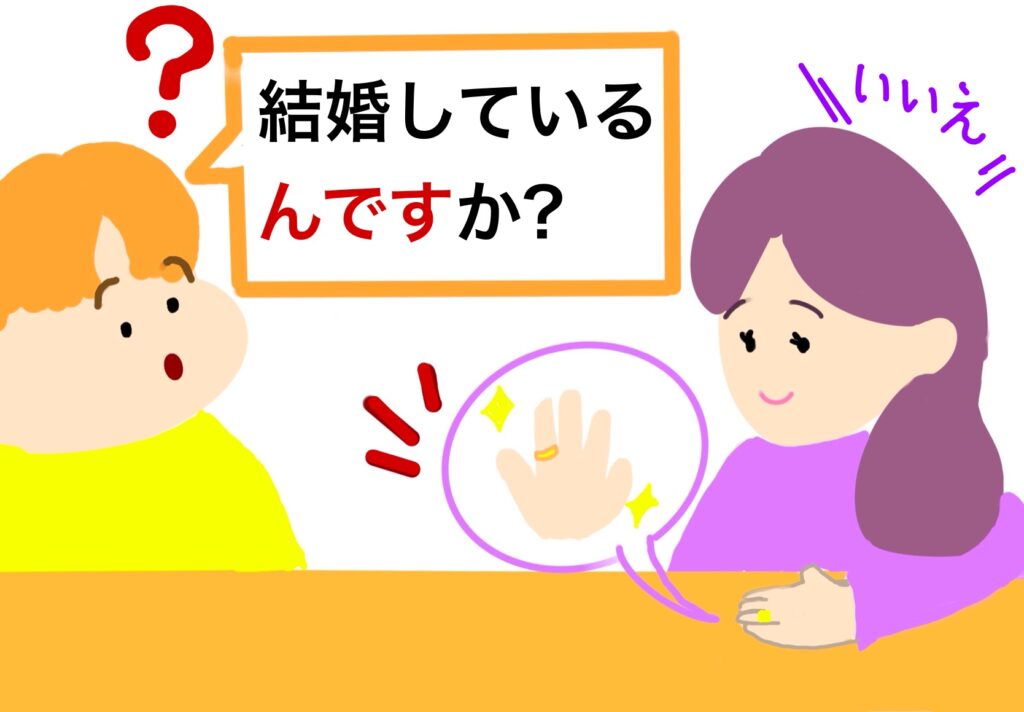
”Are you married?” – “No”
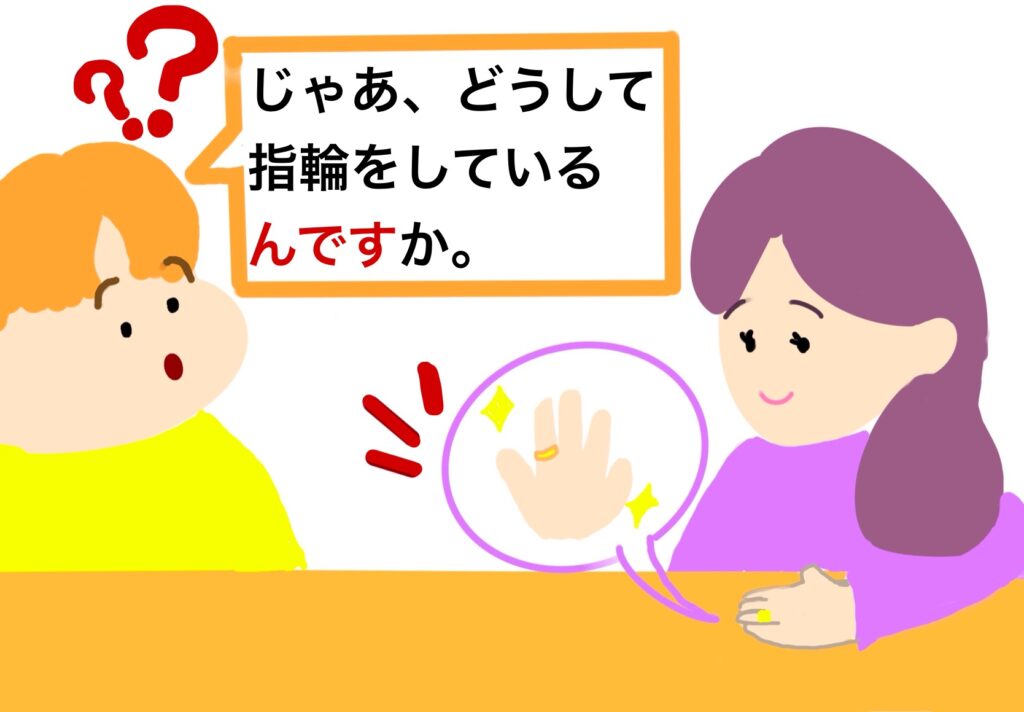
”Then, why are you wearing a ring on your ring finger?”
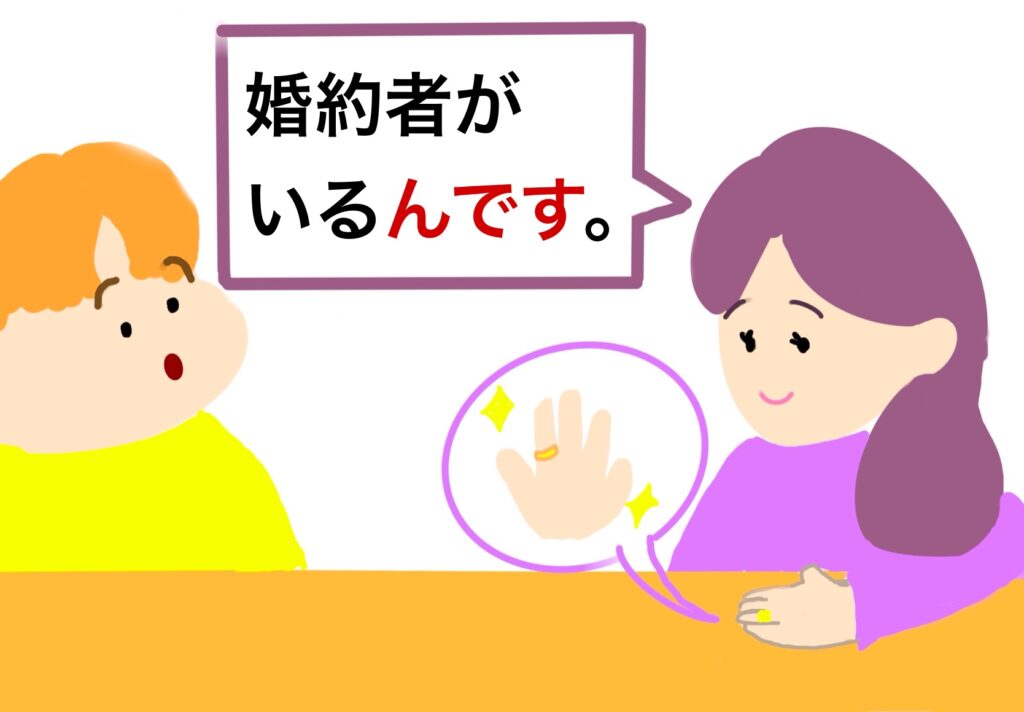
”Because I have a fiancée.“
Conversation③
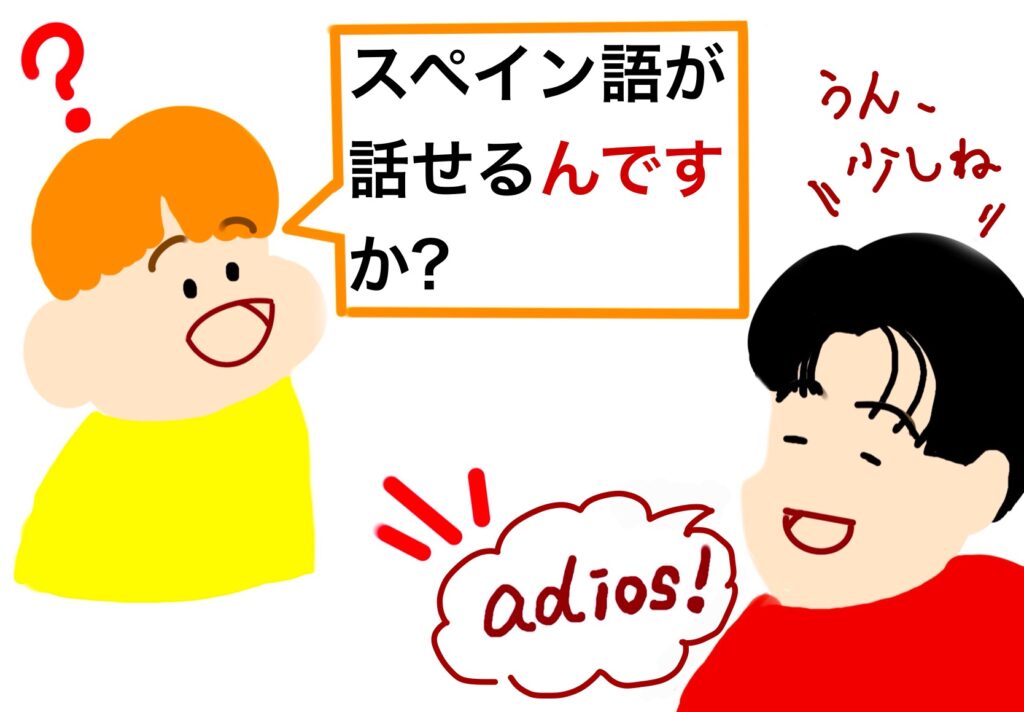
“Can you speak Spanish?” – “Yeah, a little.”
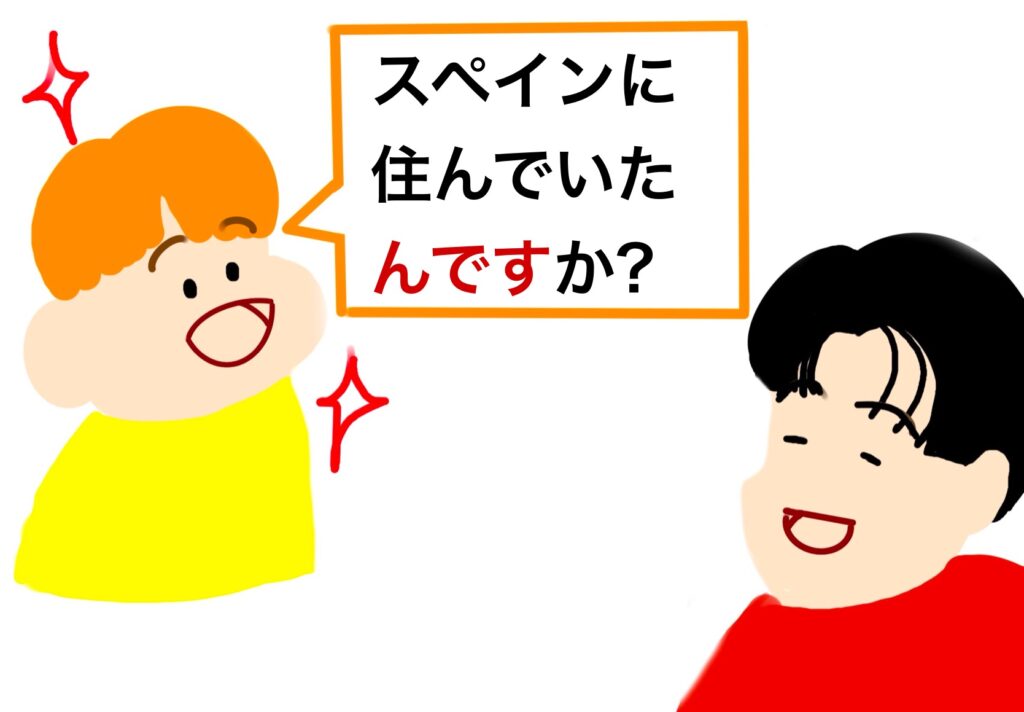
”Did you live in Spain?”
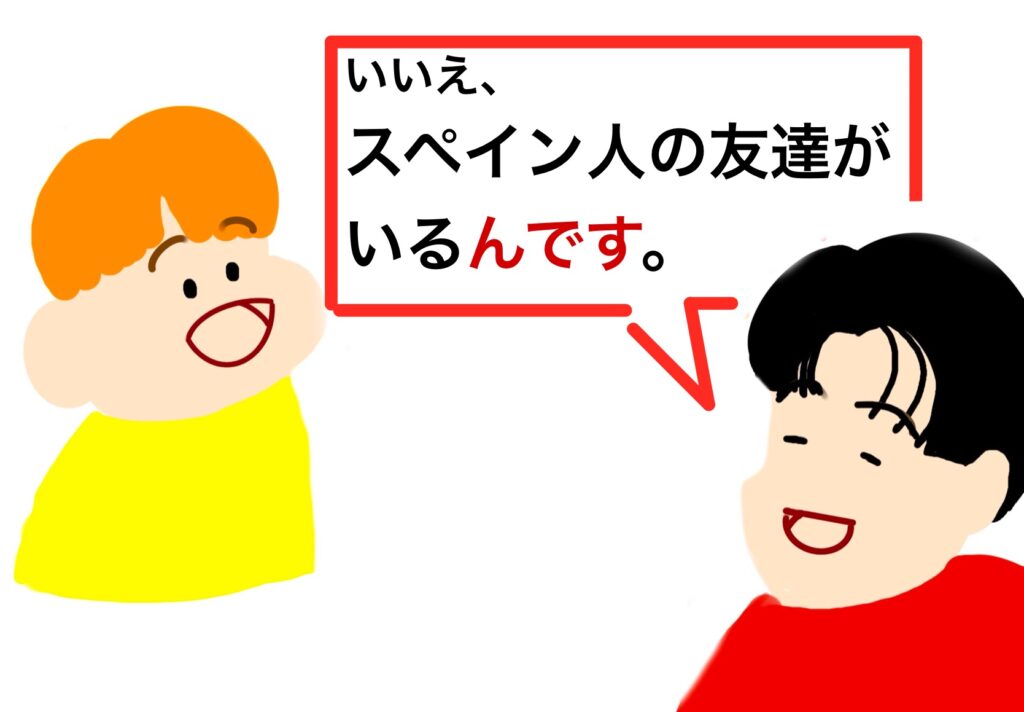
”No, I have Spanish friend.”
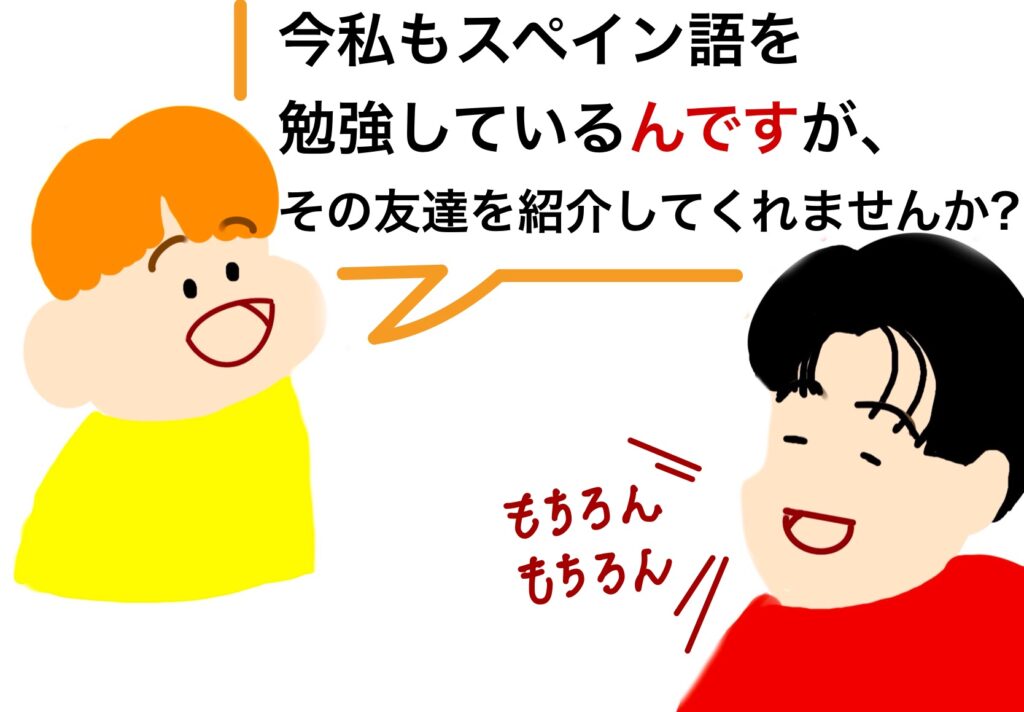
“I’m leaning Spanish now, so could you introduce me that friend?” – “Sure”
〜んですか(asking)
Questions triggered by visual or auditory
んです is used in the questions triggered by visual or auditory.
For example, when you see a friend carrying suitcase and want to ask if he is going to go travel, you should ask “旅行へ行くんですか” .

When you see a woman wearing a finger ring and want to see if she is married, you should say “結婚しているんですか”.

When you hear a friend greet to someone in Spanish and want to see if he can speak Spanish, you should say “スペイン語が話せるんですか”.
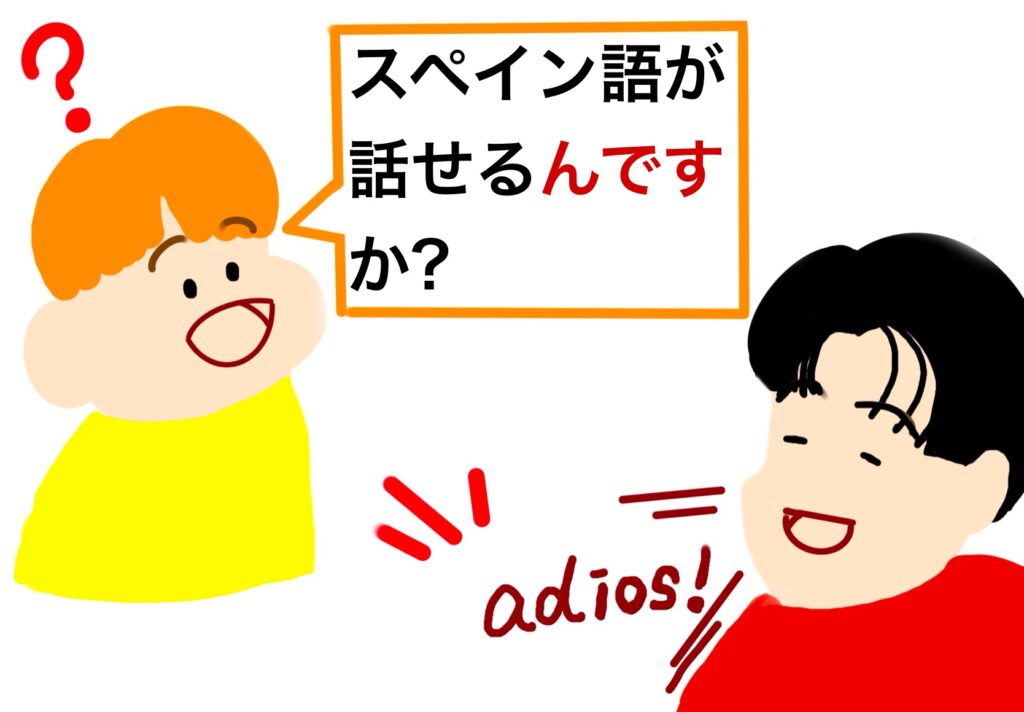
Questions to get more information
In addition, you can use んです when you want to get more information from others. If you want to know more about something, you can always use “んですか”.

That’s why Japanese use “んですか” very often in their conversations.
Eg1

Eg2

Eg3

other examples
明日は何をするんですか。
What are you doing tomorrow?
どこに住んでいるんですか。
Where are you living?
どんな曲が好きなんですか。
What type of music do you like?
どうやって駅まで行くんですか。
How can I go to the station?

Like this, when you want to know something, you can use “んです”.
〜んです(answering)
Explain the reason
んです is used to explain the reason.
For example, when someone asks you where are you going on vacation, you can answer this way.
”ハワイです。娘が住んでいるんです。”
I’m going to Hawaii. My daughter live there.

If someone asks you why you wear a ring even though you are not married, you can answer this way.
“婚約者がいるんです”
Because I have a fiancee

When people ask you why you speak Spanish so well, here’s what you should say.
“スペイン人の友達がいるんです。”
Because I have Spanish friend.

other examples
日本語が上手ですね。
Your Japanese is very good.
ーありがとうございます。3年ほど勉強しているんです。
Thank you. I have been studying for about three years.
もう帰るんですか。
Are you leaving already?
ーはい、明日は出張なんです。
Yes, I have a business trip tomorrow.
一緒にカラオケどうですか。
Would you like to sing karaoke with me?
ーすみません。歌があまり得意じゃないんです。
Sorry, I won’t . I’m not much of a singer.
〜んですが(preamble)
Preamble to asking for something or asking a question
Lastly, んです is used as a preamble to asking something or asking a question.
For example, if you want someone to introduce you to a Spanish friend, you can ask him this way.
”今私もスペイン語を勉強しているんですが、その友達を紹介してくれませんか。“
I’m leaning Spanish now, so could you introduce me that friend?

other examples
駅まで行きたいんですが、行き方を教えてもらえますか。
I want to go to the station, can you tell me how to get there?
コーヒーが飲みたいんですが、コンビニに寄ってもいいですか。
I want to buy a cup of coffee, can I stop by the convenience store?
使い方がよくわからないんですが、教えていただけますか。
I’m not sure how to use it, can you please tell me?
ちょっと寒いんですが、エアコンの温度上げてもらえますか。
It’s a little cold. Can you please turn up the temperature of the air conditioner?

That’s all today! Let’s speak Japanese in more natural way using “んです” from now on.
✏️NOTE:
-The connections rule of んです:
<Plain From>+んです
–なadjective and Noun have special rules:
<なadjective/Noun>だ+なんです
eg: 暇なんです 休みなんです

If you don’t remember how to make plain form, check it out here!


コメント